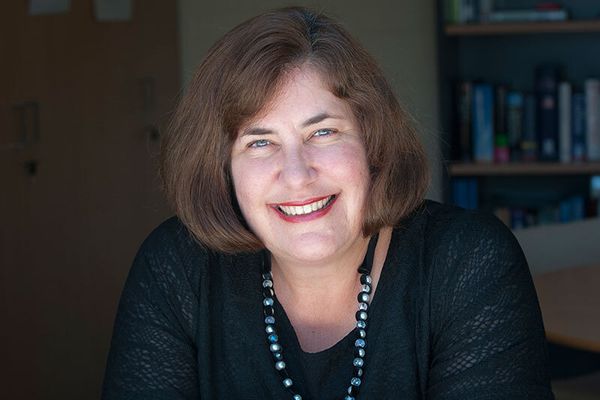Radford teachers are lifelong learners
By Louise Wallace-Richards – Assistant Principal, Teaching and Learning

When we launched the Radford Secondary School Radford Learner in 2016, the College saw the traits as applicable to both teachers and students. We are all learners for life!
The term “lifelong learner” is often used in our society as a trait we all need to aspire to. It feels to me like it has become a cliché, and therefore tending towards being meaningless. This week, I have decided through this article to explore the phrase in its context at Radford and to show that it really is alive and well at Radford.
In 1996, the Organisation for Economic Co-Operation and Development (OECD) defined lifelong learning as ”…learning [that] occurs during the whole course of a person's life. Formal education contributes to learning as do the non-formal and informal settings of home, the workplace, the community and society at large. OECD Source
This definition captures beautifully the way that learning can happen for us at Radford: in formal professional learning courses and incidental conversations with colleagues for teachers, to formal instruction in lessons with teachers and study groups with their peers for students.
Last year, though, certainly prompted by the COVID pandemic, the OECD released a document titled OECD Skills Outlook 2021: Learning for Life. This document does not just seek to define lifelong learning as in 1996, but to emphasise why it is so important for us all:
Lifelong learning is key if individuals are to succeed in labour markets and societies shaped by megatrends such as increases in life expectancy, rapid technological changes, globalisation, migration, environmental changes and digitalisation, as well as sudden shocks like the COVID-19 pandemic.
2021 Source
I particularly like the emphasis in this statement on "if individuals are to succeed". The pandemic has made us all, as a species, tired – physically, mentally and emotionally. We have all had to adapt to so much change and I have written previously about the exceptional job our teaching staff did in 2020 and 2021 in moving to online teaching. We are still pivoting in 2022 to try to make the learning experience for our students as seamless as possible, despite both student and teacher absences due to COVID. Nexus lesson planning and class Onenote or Teams Notebooks have played their part this semester in helping teachers to deliver quality lessons and students to access learning.
This ongoing need for pivoting at Radford was shown to be a common experience in independent schools across Australia when Adrian Johnson, Head of Secondary School; Lindy Braithwaite, Assistant Principal Curriculum; Reverend Katherine Rainger; Jeremy Hawkes, Interdisciplinary Coordinator and I attended the Association of Heads of Independent School of Australia (AHISA) Conference in Melbourne in the last holidays.
Despite COVID and all that it has forced us to contend with in our workplace over the past two years, 2022 has enabled the Secondary School teaching team to resume formal professional learning in communion with their peers, to ensure students receive teaching and learning experiences that are informed by the best and latest educational research. We have also continued to operate as reflective change-makers through reflecting on our practice with our colleagues, in our teacher Communities of Practice, with our Heads of Department in our goal discussions and, for early career teachers, with their coaches.

Since Semester Two 2021, teachers have undergone extensive learning about how to use our learning management system Nexus to plan teaching and learning programs, publish lessons to students, and assess and report. This has been a monumental task, and Lisa Plenty, Dougal Mordike and Lindy Braithwaite have been instrumental in delivering this learning to staff.
The Heads of Department have also been key to the successful implementation of Nexus as the replacement for SEQTA. They have also continued to research areas of interest and passion through our Leadership Community of Practices (LCoPs). This year the CoPs are being led by our middle leaders and Deans:
- Jason Golding, Head of English – Collaborative Teaching CoP
- Jane Smith, Head of Student Support and Enrichment – Feedback CoP
- Nick Moss, Dean of Senior Studies/IBDP Co-ordinator – the Approaches to Learning CoP
- Jeremy Hawkes, Interdisciplinary Coordinator – Interdisciplinary Learning CoP.
The Academic Executive team look forward to hearing of their research and recommendations at the end of this term.

Our Heads of Department (HoDs) continue to be engaged in Phase One of our self-regulated learning (SRL) project with Assistant Professor Dr Shyam Barr of the University of Canberra. We have also moved to our Phase Two of the project, with the HoDs observing lessons of members of their teams teaching SRL strategies to students. Our aim with this project is to have students use the strategies themselves to help them learn, and this can only happen if we include the teaching of SRL strategies along with our teaching of content in our lessons.
One of the exciting teaching and learning initiatives from our College 2021–2025 Strategic Plan that we launched at the end of last term, and have fully implemented this term, is our coaching program for early career teachers. After completing extensive formal learning over the past two years, Ailsa Mackerras, Julia Oreo and I have developed a coaching model informed by the work of Jim Knight and Growth Coaching International. Our coaching process, as represented in the diagram below, will run for approximately one semester.

Ailsa and Julia have been joined by Kath Notley, Heath Wade and Tom Wragg as Secondary School coaches this term and I look forward to hearing from them and their coaches at the end of this term about how the implementation of the program has progressed.
Finally, I would like to celebrate the successes of my colleagues Lindy Braithwaite and Adrian Johnson: Lindy, for her presentation on data for the professional learning group The Hatchery
and Adrian for his leadership of our Secondary Executive team. Trinity Anglican College’s gain is Radford's loss!
